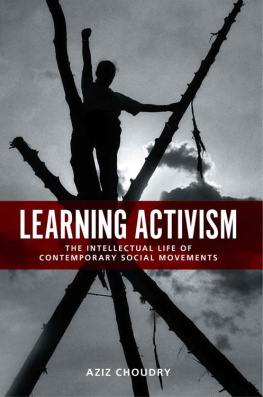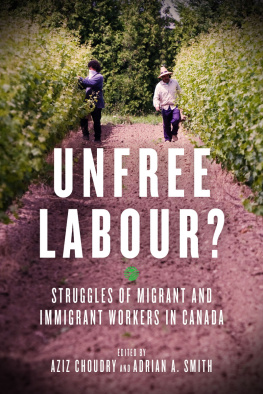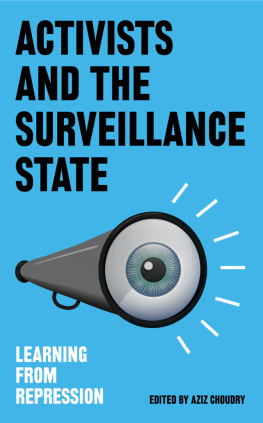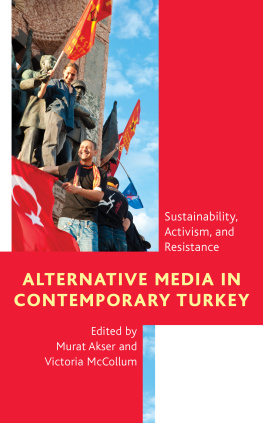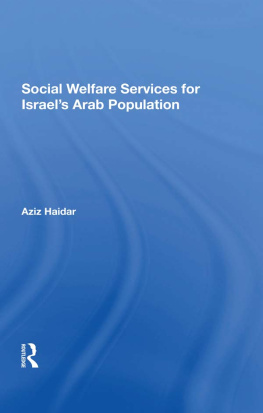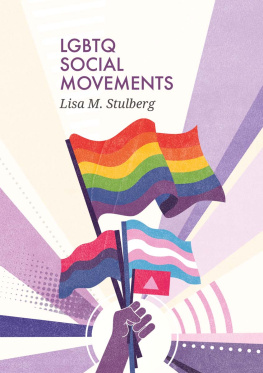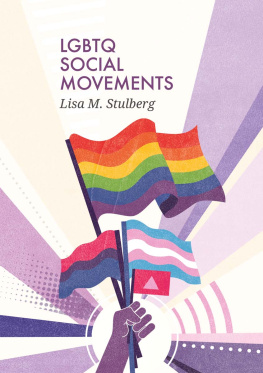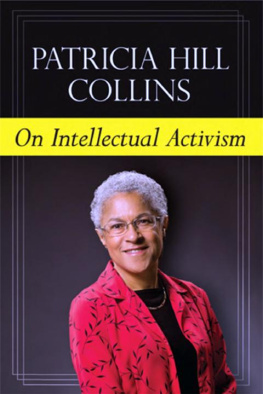Aziz Choudry - Learning Activism: The Intellectual Life of Contemporary Social Movements
Here you can read online Aziz Choudry - Learning Activism: The Intellectual Life of Contemporary Social Movements full text of the book (entire story) in english for free. Download pdf and epub, get meaning, cover and reviews about this ebook. year: 2015, publisher: University of Toronto Press, Higher Education Division, genre: Politics. Description of the work, (preface) as well as reviews are available. Best literature library LitArk.com created for fans of good reading and offers a wide selection of genres:
Romance novel
Science fiction
Adventure
Detective
Science
History
Home and family
Prose
Art
Politics
Computer
Non-fiction
Religion
Business
Children
Humor
Choose a favorite category and find really read worthwhile books. Enjoy immersion in the world of imagination, feel the emotions of the characters or learn something new for yourself, make an fascinating discovery.
- Book:Learning Activism: The Intellectual Life of Contemporary Social Movements
- Author:
- Publisher:University of Toronto Press, Higher Education Division
- Genre:
- Year:2015
- Rating:3 / 5
- Favourites:Add to favourites
- Your mark:
- 60
- 1
- 2
- 3
- 4
- 5
Learning Activism: The Intellectual Life of Contemporary Social Movements: summary, description and annotation
We offer to read an annotation, description, summary or preface (depends on what the author of the book "Learning Activism: The Intellectual Life of Contemporary Social Movements" wrote himself). If you haven't found the necessary information about the book — write in the comments, we will try to find it.
Aziz Choudry: author's other books
Who wrote Learning Activism: The Intellectual Life of Contemporary Social Movements? Find out the surname, the name of the author of the book and a list of all author's works by series.
Learning Activism: The Intellectual Life of Contemporary Social Movements — read online for free the complete book (whole text) full work
Below is the text of the book, divided by pages. System saving the place of the last page read, allows you to conveniently read the book "Learning Activism: The Intellectual Life of Contemporary Social Movements" online for free, without having to search again every time where you left off. Put a bookmark, and you can go to the page where you finished reading at any time.
Font size:
Interval:
Bookmark:
LEARNING ACTIVISM
LEARNING ACTIVISM
THE INTELLECTUAL LIFE OF CONTEMPORARY SOCIAL MOVEMENTS
AZIZ CHOUDRY

Copyright University of Toronto Press 2015
Higher Education Division
www.utppublishing.com
All rights reserved. The use of any part of this publication reproduced, transmitted in any form or by any means, electronic, mechanical, photocopying, recording, or otherwise, or stored in a retrieval system, without prior written consent of the publisheror in the case of photocopying, a licence from Access Copyright (Canadian Copyright Licensing Agency), One Yonge Street, Suite 1900, Toronto, Ontario M5E 1E5is an infringement of the copyright law.
Library and Archives Canada Cataloguing in Publication
Choudry, Aziz, author
Learning activism : the intellectual life of contemporary social movements / Aziz Choudry.
Includes bibliographical references and index.
Issued in print and electronic formats.
ISBN 978-1-4426-0791-0 (bound).ISBN 978-1-4426-0790-3 (pbk.).
ISBN 978-1-4426-0792-7 (pdf).ISBN 978-1-4426-0793-4 (html).
1. Social movements. 2. Political activistsIntellectual life. 3. Social reformersIntellectual life. I. Title.
HM881.C46 2015 303.484 C2015-901439-5
C2015-901440-9
We welcome comments and suggestions regarding any aspect of our publicationsplease feel free to contact us at .
North America
5201 Dufferin Street
North York, Ontario, Canada, M3H 5T8
2250 Military Road
Tonawanda, New York, USA, 14150
ORDERS PHONE: 18005659523
ORDERS FAX: 18002219985
ORDERS E-MAIL:
UK, Ireland, and continental Europe
NBN International
Estover Road, Plymouth, PL6 7PY, UK
ORDERS FAX: 44 (0) 1752 202333
ORDERS PHONE: 44 (0) 1752 202301
ORDERS E-MAIL:
Every effort has been made to contact copyright holders; in the event of an error or omission, please notify the publisher.
This book is printed on paper containing 100% post-consumer fibre.
The University of Toronto Press acknowledges the financial support for its publishing activities of the Government of Canada through the Canada Book Fund.
Printed in the United States of America.
CONTENTSFIGURES
ACKNOWLEDGEMENTS
As this book argues, knowledge and learning in social movements and activism are often produced collectively and in interaction with others. Learning Activism emerged from, and is very much influenced by and produced through collective efforts in which many people were engaged, both in the past and in the present. This includes too many conversations, shared experiences, and back stories to do justice to here. I started a list of people to thank, but it would be an impossible task to do justice to everyone who should be acknowledged. You know who you are.... Despite that, the primary responsibility for the books contents, including any shortcomings, is mine. I am profoundly grateful for the Indigenous Peoples of Aotearoa and Turtle Island for providing me with places to think and write over many years. I am particularly indebted to Dave Bleakney, Leigh Cookson, Radha DSouza, Michelle Hartman, Tony Kelly, Orin Langelle, Dsire Rochat, and Salim Vally, who read and commented on earlier drafts of some or all parts of this book. The section on migrant and immigrant workers and knowledge production in earlier drafts of this book. Finally, I am grateful to Anne Brackenbury at University of Toronto Press for her invitation to write this book and for her support in seeing it through with discussion and editorial input, and to Leanne Rancourt for her careful copyediting and Ashley Rayner, Anna Del Col and Beate Schwirtlich for their efficient assistance.
Note: Some of the material in is adapted from the following articles:
Choudry, A. (2013). Activist research and organizing: Blurring the boundaries, challenging the binaries. International Journal of Lifelong Education . doi:10.1080/02601370.2013.867907Choudry, A. (2013). Activist research practice: Exploring research and knowledge production for social action. Socialist Studies , (1), 128151.Choudry, A. (2014). Activist research for education and social movement mobilization. Post-Colonial Directions in Education , (1), 88121.All royalties from this book will go to the Immigrant Workers Centre in Montreal.
Footnote
PREFACEI am a bit of a hoarder. When I interviewed for a tenure-track academic position in McGill Universitys Faculty of Education in 2007, I arrived as a doctoral student without any university degrees except for a one-year graduate diploma but with some two decades worth of baggage of activism, popular education, and organizing work. This was not just metaphorical baggage. I actually turned up to the interview room with a suitcase full of publications, DVDs, and other documentation that I had written, edited, contributed to, researched, or had otherwise been directly involved with in the course of my activist work. This material was published in numerous countries across the Asia-Pacific, North America, and Europe by movements, nongovernmental organizations (NGOs), trade unions, and independent progressive media, often with little or no involvement of academic researchers. I spread it out on a table before the interview began. I did this not just to illustrate my productivity but to make a point to the hiring committeemy soon-to-be colleaguesthat this material was important. I wanted to show that popular/activist knowledge produced outside of the academy and academic scholarship can each have their own integrity, strengths, and weaknesses.
I played a film clip of a workshop on resistance against bilateral free trade and investment agreements that I facilitated at the November 2004 Peoples Convention on Food Sovereignty in Dhaka, Bangladesh. Among the publications on the table was a book I had edited on strategies for confronting transnational corporations in the Asia-Pacific, reports I had written on topics including childcare and workers rights, and a controversial overseas aid-funded forestry development project in the Philippines. There were fact sheets on subjects like free trade and the Pacific Islands, intellectual property rights, corporate control over agriculture, and threats to the future of rice. There were pieces that I had written for Australian migrant and refugee justice networks on racism, colonialism, and immigration detention policies, and a critical analysis of a major US environmental NGO that was published in Spanish in a Latin American magazine on biodiversity. And there were interview articles with a range of activists and organizers adapted from transcripts of broadcasts of a radio show that I co-produced and hosted in Christchurch (Aotearoa/New Zealand) in the 1990s. All of these resources were shared as examples of the education, thinking, theorizing, and other forms of knowledge produced in movements and activist circles. This intellectual work is too rarely acknowledged in faculties of education or universities as a whole. This public show-and-tell activity with some of my personal activist archives was intended to emphasize its importance and to challenge the fact that these kinds of knowledge, research, and ideas are not often seen to be on equal terms with academic knowledge.
The ideas in this book took shape out of reflections on the approximately 30 years of my own political engagements. By drawing on my experiences and research, I highlight the intellectual contributions of the knowledge produced, informal and non-formal learning, and research within activism. I also connect all of these to the fields of education and learning. Through this, I propose that social, political, and environmental activist movements can best be understood if we engage with the learning, knowledge, debates, and theorizing that go on within them. I draw on my own experiences and learning in my activist involvements to share what I have learned and to inform and inspire further reflection and critical inquiry in others. These experiences and the ideas behind them are drawn from many places, times, and struggles. They range from organizing experiences in Aotearoa/New Zealand to progressive social movements and peoples organizations in the Philippines, and from support for Indigenous Peoples struggles for self-determination to migrant and immigrant workers struggles in Canada to the 2012 student strike in Quebec.
Next pageFont size:
Interval:
Bookmark:
Similar books «Learning Activism: The Intellectual Life of Contemporary Social Movements»
Look at similar books to Learning Activism: The Intellectual Life of Contemporary Social Movements. We have selected literature similar in name and meaning in the hope of providing readers with more options to find new, interesting, not yet read works.
Discussion, reviews of the book Learning Activism: The Intellectual Life of Contemporary Social Movements and just readers' own opinions. Leave your comments, write what you think about the work, its meaning or the main characters. Specify what exactly you liked and what you didn't like, and why you think so.

